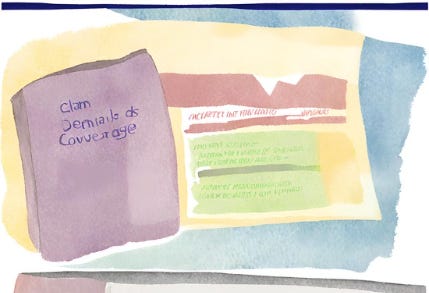Claim Denials & Coverage Disputes in India: Understanding Types, Laws, and ADR Solutions
Insights into Claim Denials, Legal Framework, and ADR Solutions
In the realm of insurance, claim denials and coverage disputes are not uncommon occurrences. These disputes arise when an insurer refuses to honor a claim made by the insured, citing various reasons such as policy exclusions, coverage limitations, or alleged misrepresentation. Understanding the types of disputes, relevant laws, and the role of Alternate Dispute Resolution (ADR) mechanisms can be crucial in navigating such complex scenarios.
Types of Disputes:
1. Denial of Claim:
- Insurers may deny claims based on policy terms, asserting that the claimed loss or damage is not covered under the policy.
2. Coverage Limitation Disputes:
- Disputes may arise when insurers interpret policy coverage limits differently from what the insured expected, leading to disagreements over the extent of coverage.
3. Misrepresentation Allegations:
- Insurers may allege that the insured misrepresented facts or failed to disclose relevant information during the insurance application process, leading to disputes regarding coverage validity.
Relevant Laws:
In India, insurance disputes are governed by various laws and regulations, including:
- Insurance Act, 1938: Provides a framework for insurance regulation and governance, including provisions related to claim settlements and dispute resolution.
- Insurance Regulatory and Development Authority of India (IRDAI) Act, 1999: Establishes the IRDAI as the regulatory authority overseeing the insurance sector, with powers to address consumer grievances and disputes.
- Consumer Protection Act, 2019: Offers avenues for consumers to seek redressal for unfair trade practices, including disputes with insurance providers.
Dispute Scenario:
Consider a scenario where a policyholder submits a claim for property damage under a home insurance policy. The insurer denies the claim, citing a specific exclusion clause related to natural disasters. The policyholder argues that the damage resulted from a covered peril and disputes the denial, leading to a claim coverage dispute.
ADR for Resolution:
Alternate Dispute Resolution mechanisms such as mediation, arbitration, and conciliation offer efficient and effective ways to resolve insurance claim disputes outside the traditional court system. Here's how ADR can help:
1. Mediation:
- A neutral mediator facilitates discussions between the parties, helping them reach a mutually acceptable resolution. Mediation encourages open dialogue, creative problem-solving, and preserves relationships.
2. Arbitration:
- Parties present their cases to an arbitrator, who makes a binding decision based on the evidence and arguments presented. Arbitration provides a quicker and more flexible resolution compared to court proceedings.
3. Conciliation:
- Similar to mediation but with the conciliator playing a more active role in proposing solutions. Conciliation aims to find common ground and achieve a settlement that satisfies both parties.
ADR offers several advantages over traditional litigation, including confidentiality, cost-effectiveness, faster resolution, and party control over the outcome. By embracing ADR methods, insurance claim disputes can be resolved amicably, reducing the time, costs, and stress associated with prolonged legal battles.
In conclusion, navigating claim denials and coverage disputes in India requires a nuanced understanding of the types of disputes, relevant laws, and the benefits of ADR mechanisms. Embracing ADR can lead to timely and satisfactory resolutions, fostering trust and harmony between insurers and policyholders.
---
The information provided in this blog post is for informational purposes only and should not be construed as legal advice or a legal opinion. Readers are advised to consult with qualified legal professionals or experts for specific guidance and assistance related to insurance adjustment disputes or any legal matters mentioned in this post. The author and publisher of this post do not assume any responsibility or liability for actions taken based on the information provided herein.


